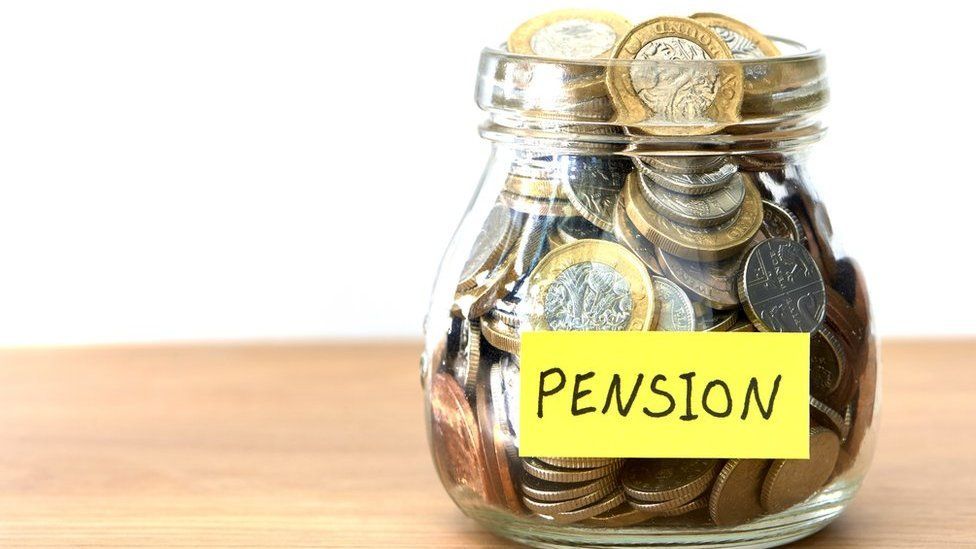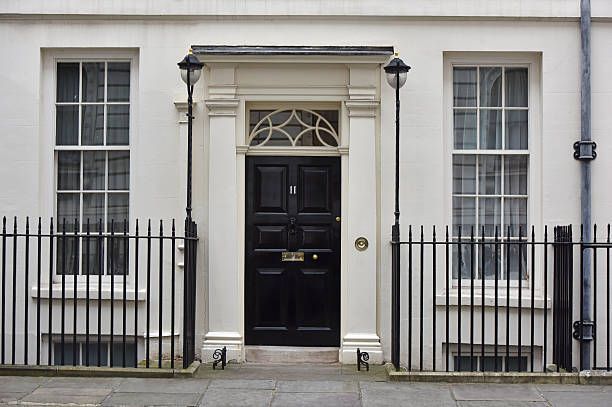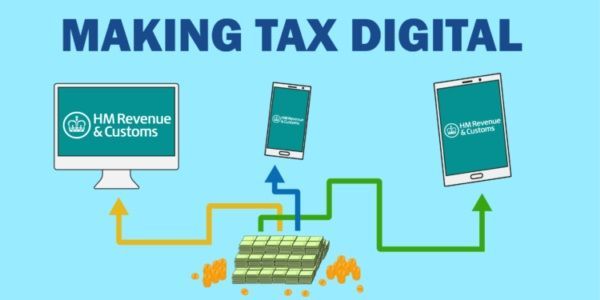Chris Derby Limited Accounting Services
Blog
Blog

by Christopher Derby
•
28 Mar, 2024
To receive the full state pension your national insurance record must include 35 “qualifying years”. A qualifying year is one in which you were either: 1. working and made National Insurance contributions*, or 2. getting National Insurance credits e.g. if you were unemployed, ill or a parent or carer, or 3. paying voluntary National Insurance contributions. * If you are working it is not always necessary to pay contributions in order to qualify for a state pension. For directors and employees, if your earnings exceed the lower earnings threshold of £533 per month then they do qualify for state pension notwithstanding that no employee contributions are payable on earnings of less than £1,048 per month (and, no employer contributions are payable on earnings of less than £758 per month). Similarly, for the self-employed, those with profits between £6,725 and £12,570 will qualify for state pension without paying contributions. If you are in doubt as to whether you will have sufficient qualifying years we recommend that you should check before you reach state pension age. This is fairly simple by opening an online personal tax account. Please visit: www.gov.uk/personal-tax-account Once the account has been set up you will be able to review your record for state pension purposes and the amount of your expected pension. If you expect to have insufficient qualifying years for the full pension, you may be able to boost the number of qualifying years by one of the following alternatives: For the self-employed, it is no longer required that you should pay class 2 contributions. However, if your business profits are less than £6,725 per annum then you would not otherwise qualify for state pension. In order to so qualify, you can however opt to pay class 2 contributions which are at set at a flat rate of £3.45 per week. You can normally pay contributions for the last 6 years. For those who are not self-employed, you may pay class 3 voluntary contributions. These are set at a rate of £17.45 per week; class 2 contributions are therefore always the preferred alternative for the self employed as they are far less expensive. A useful link towards paying Class 2 is found at: www.gov.uk/pay-class-2-national-insurance For those who reach state pension age after 5th April 2016, state pension is paid at a flat rate. The weekly rate of state pension for the year commencing 6th April 2024 is £221.20 (the 2023-24 figure was £203.85). Whilst the level of state pension entitlement is set as weekly figure, most people elect to receive their pension at 4 weekly intervals. You would therefore receive 13 payments each year. However, for taxation purposes it is your entitlement to a weekly sum that will be included in your taxable income. Your annual taxable income will usually include 52 weeks of entitlement, and may occasionally include 53 weeks when there are 53 payment days falling within the tax year (the due date for payment varies according to the last two digits of your national insurance number).

by Christopher Derby
•
13 Mar, 2024
Perhaps the best news in the Budget was that our rate of inflation is expected to fall below 2% within the next two months. That is good news for the cost of living and in particular for interest rates and for those who have to renew their mortgage in the coming months. The key fiscal measures announced had been widely predicted and include the following: National Insurance The rates of employee and self-employed national insurance contributions are each reduced by 2% so that with effect from 6th April 2024 they become: Employees Self-Employed Rate of contributions on earnings between £12,570 and £50,270 per annum 8% 6% on earnings in excess of £50,270 per annum 2% 2% There are no changes to the rate of employer contributions. Please note that under existing measures the self employed are no longer required to pay Class 2 contributions. However, a self-employed person can opt to pay Class 2 contributions and if no other contributions are due this may be beneficial in order to ensure that a particular year will count towards a state pension. Generally, because the personal allowance has been frozen at £12,570 and the threshold before higher rate tax applies at £50,270, the Government will be collecting more income tax in the next year. As earnings increase more people will be brought into the scope of income tax and into the higher rate tax thresholds. As a result, some people will be paying more in tax than they save on national insurance; this is very much dependent upon your own personal circumstances. Child Benefit For several years, Child Benefit has been scaled back when either parent has a taxable income in excess of £50,000 per annum. The means of reducing the benefit is that the parent with higher income pays a High Income Child Benefit Charge (“HICBC”). This threshold is being increased to £60,000 per annum with effect from 6th April. Furthermore, the rate of the HICBC is being halved to become 1% of income between £60,000 and £80,000. On income in excess of £80,000 the Child benefit received will be repaid entirely. For those who have ceased to claim Child Benefit because of the HICBC it is worthwhile to consider whether you should reapply for the benefit after 6th April 2024. i.e. for those couples where the income of both parents is less than £80,000 each. Value Added Tax The VAT registration threshold is being increased to £90,000 per annum. For those taxpayers whose sales are close to the threshold of £90,000 per annum it is important to keep the level of your income under regular review. If sales should exceed £90,000 in any period of 12 months, or less, you are required to notify HM Revenue and Customs and to register for value added tax. “Any period” essentially means that you need to check at the end of every month whether your sales in the 12 months up to that date have exceeded £90,000 in total. You also need to register if you enter into a contract such that your sales in the next 12 months will exceed £90,000 per annum. Taxation measures for Limited Companies There was not a great deal of news in the Budget for Limited Companies. The rates of Corporation tax remain as previously announced; On profits up to £50,000 per annum 19% On profits between £50,001 and £250,000 26.25% On profits in excess of £250,000 per annum 25% Where more than one company is controlled by the same person or persons these thresholds are divided by the number of companies under common ownership. A company may claim capital allowances for expenditure on plant, machinery and equipment on a “full expensing basis”. This means that the whole cost is claimed as a 100% allowance in the year of purchase. The machinery or equipment must be new and cannot include cars. However, if you sell an asset on which full expensing has been claimed, then the whole sale proceeds will be taxed as a balancing charge. This may mean that full expensing is NOT the best basis of claiming tax relief for the item concerned. As an alternative to full expensing, there also remains an annual investment allowance (“AIA”) of 100% for expenditure of up to £1,000,000 per annum on plant and machinery. Where a business has a pool of expenditure yet to be allowed then any sale proceeds received for plant and machinery will be deducted from the balance of that pool; it is only when the proceeds exceed the balance of previously unrelieved expenditure that there will be a balancing charge. For most small businesses the AIA will therefore remain the optimum basis for claiming allowances whilst the present rate continues to be available. The Chancellor also announced some special taxation measures for British Films, high-end TV, theatres, orchestras and exhibitions, and a rates cut for film studios. Capital Gains Tax for Residential Property The rate of capital gains tax for residential property is 18% to the extent that your total income and capital gains are less than £50,270, and 28% to the extent that your income and gains exceed £50,270. The higher rate has been reduced from 28% to 24%, with effect from 6th April. Non-UK domiciled The present income tax system for those of a non-UK domicile is to be abolished. Instead, for those who are coming to the UK for their first extended period of UK residence, their offshore income will remain outside of the scope of UK tax for the first four years in which they are UK tax resident. When they continue to be UK resident after the first four years’ they will then be liable to income tax on their Worldwide income thereafter. It has to be remembered that many people can be regarded as tax resident in more than one Country or State, at the same time, according to the laws of each Country involved. The UK has a double taxation treaty with most other Countries, to ensure that tax is not paid at full higher rates in both Countries. As a result, it is not so straight forward that a taxpayer individuals will necessarily pay UK tax on their worldwide income; where an individual pays tax will depend upon the Country in which they are determined to be primarily resident under the terms of the relevant double taxation treaty or treaties. An individual is likely to be taxed on their Worldwide income if they are in the UK for 183 days per annum and have been here for 4 years. For those who spend less of their time here it will all depend upon a number of factors. We would therefore anticipate that for the wealthy who travel significantly they may well be spending less time in the UK and thus not be required to pay UK tax on their offshore income. Furnished Holiday Lettings The Government propose to abolish the present furnished holiday lettings regime. This regime extended a number of tax reliefs to Landlords by treating a business which qualified for the regime on the same basis as those which carry out trading activities. It is not within the scope of this article to distinguish trading activities from rental activities but, broadly, a business may still qualify for trading reliefs if sufficient services are provided to customers over and above those entailed in maintaining a property and collecting rents or other charges for use of the property. Other Taxes The chancellor made a number of announcements in relation to duties that we do not propose to cover in this article. British Only ISA The Chancellor announced an additional allowance of up to £5,000 per annum for investment into an ISA which holds British only assets. This is over and above the present ISA allowance of £20,000 per annum. However, it remains to be seen how such “British” assets are to be defined. So far, the financial industry seems to be unimpressed by the proposal but it may mature in time. This article is by no means exhaustive but is intended to cover the majority of the budget as it relates to private individuals and to the SME sector. Please also note that all of the changes indicated are subject to approval of the House of Commons and to passage of the Finance Act.

by Chris Derby
•
02 Feb, 2024
Tax Free Perks An employer can provide any number of small tax free benefits in kind to their staff. “Small” means £50 or less. The benefit has to be provided “in kind” so cannot be paid in cash but might be a voucher. For company directors the tax free perks are capped at £300 per annum and again the maximum is £50 for each perk. For example, the perk could be given as retail vouchers. The benefit arises when the voucher is given. If six vouchers are bought from the same place at the same time, HMRC might argue that this is a single benefit. Best practice is therefore to buy the vouchers at different times. Call us if you have any questions on this.

by Chris Derby
•
01 Feb, 2024
For a small business the company purchase of a car has long been a no-no but there is now an incentive for companies to provide an electric car. Unless a car is within the scope of these incentives, the business cannot reclaim vat on the purchase of a car, the rate of tax allowances for the cost of the car are low, and the director or employer who is provided with a car will potentially pay tax on benefits that exceed the purchase price of the car. Instead of the business providing a car there is usually less tax to pay if the owner draws an additional dividend and buys the car personally. However, if the Co2 emissions are 0 (basically the car is wholly electric), the company can claim full tax allowances in the year of purchase. If the emissions are more than 0 but are 50g/km or less the company claims 18% pa of the written down value / above 50 Co2 the company claims 6% pa. So with only 51 Co2 emissions or more the allowances for a company to buy are already very little – there may be a balancing allowance eventually when the car is sold or otherwise disposed of but the calculation of this depends upon what other assets the company has bought and are included in a pool of assets qualifying for either the 18% or 6% rate of allowances. You will pay tax personally on the benefit of a car which is provided to you by your company. The benefit added to your taxable income is calculated as a % of the manufacturers list price for that car and model. Again, the benefit in kind (“BIK”) rate can be very attractive for a wholly electric car – the scales are as follows: Co2 Electric Taxable Emissions Range Benefit g/km Miles % of list price These rates apply 0 All 2% until 5th April 2025 0-50 > 130 2% 0-50 70-129 5% 0-50 40-69 8% 0-50 30-39 12% 0-50 < 30 14% 51-54 15% 55-59 16% 60-64 17% 65-69 18% 70-74 19% 75-79 20% 80-84 21% 85-89 22% 90-94 23% 95-99 24% 100-104 25% 105-109 26% 110-114 27% The table goes up to 37% pa for a car of 160 Co2 emissions or more. In just 3 years you would have paid tax on more than the total purchase price so that is clearly not worthwhile, but if the Co2 emissions are less than 100 it is not so bad and, on zero Co2 emissions with reasonable mileage you only pay tax on 2% of the cost. These rates should remain with us for until 5th April 2025 but after that we may well see even harsher disincentives for all non- electric cars. Another idea to think of is company contract hire of a car. So some manufacturers have fairly good 2 year contracts for a car of less than 100 Co2 emissions. All maintenance is paid for under contract hire and if your taxable benefit is in that 24% band or less it is a fairly attractive way of getting a new car every 2 years. Fuel Costs Do however note that the company should not pay for any petrol if the company are also providing a car. When a company does both provide a car and pay for fuel, there is a very high fuel scale added to the taxable income of the director or employee. The fuel benefit is a fixed annual charge which applies even if only one drop of fuel was to be paid for by the business. A better way of recompensing directors and employees for the cost of fuel would be that the business will pay a fuel mileage allowance for use of the car on business journeys, and the recipient pays for their own fuel bills personally. Vans One idea that suits several of our traders is that a vehicle of more than 1 tonne laden weight is a van – it is not a car. Vans qualify for full allowance as a deduction from profits in the year purchased, and for recovery of the vat included in the purchase price, and the taxable benefits are considerably less than those for car benefits; so from solely taxation perspectives there are three good reasons to prefer a vehicle of more than 1 tonne laden weight. Such a heavy vehicle may not suit everyone but, for example, certain Land Rover Discovery models are such “vans” and this is one reason that you will see quite a few of those on the road.
Copyright © All Rights Reserved.



